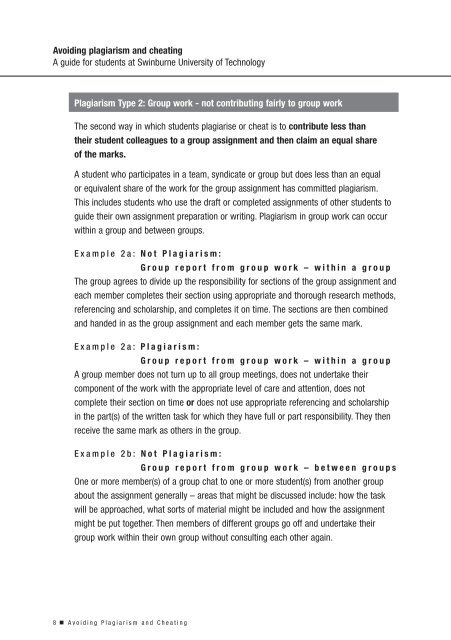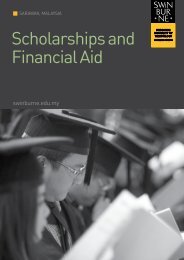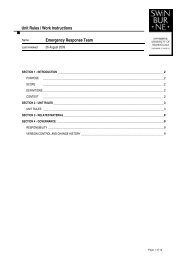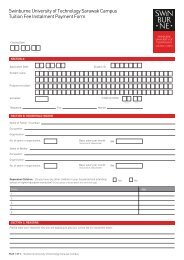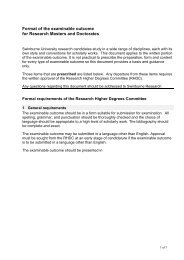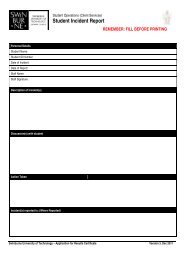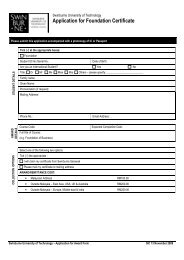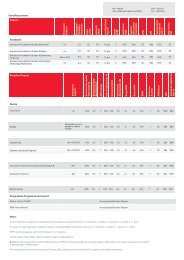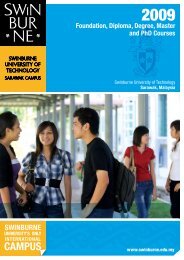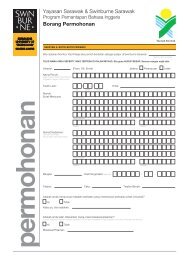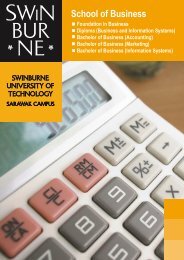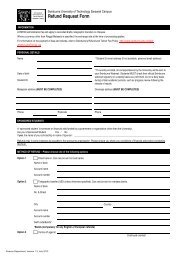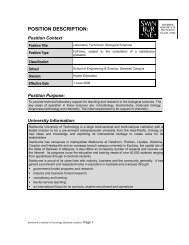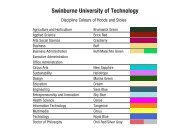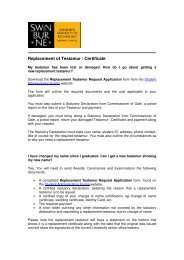Plagiarism Guide - Swinburne University of Technology
Plagiarism Guide - Swinburne University of Technology
Plagiarism Guide - Swinburne University of Technology
- No tags were found...
Create successful ePaper yourself
Turn your PDF publications into a flip-book with our unique Google optimized e-Paper software.
Avoiding plagiarism and cheatingA guide for students at <strong>Swinburne</strong> <strong>University</strong> <strong>of</strong> <strong>Technology</strong><strong>Plagiarism</strong> Type 2: Group work - not contributing fairly to group workThe second way in which students plagiarise or cheat is to contribute less thantheir student colleagues to a group assignment and then claim an equal share<strong>of</strong> the marks.A student who participates in a team, syndicate or group but does less than an equalor equivalent share <strong>of</strong> the work for the group assignment has committed plagiarism.This includes students who use the draft or completed assignments <strong>of</strong> other students toguide their own assignment preparation or writing. <strong>Plagiarism</strong> in group work can occurwithin a group and between groups.Example 2a: Not <strong>Plagiarism</strong>:Group report from group work – within a groupThe group agrees to divide up the responsibility for sections <strong>of</strong> the group assignment andeach member completes their section using appropriate and thorough research methods,referencing and scholarship, and completes it on time. The sections are then combinedand handed in as the group assignment and each member gets the same mark.Example 2a: <strong>Plagiarism</strong>:Group report from group work – within a groupA group member does not turn up to all group meetings, does not undertake theircomponent <strong>of</strong> the work with the appropriate level <strong>of</strong> care and attention, does notcomplete their section on time or does not use appropriate referencing and scholarshipin the part(s) <strong>of</strong> the written task for which they have full or part responsibility. They thenreceive the same mark as others in the group.Example 2b: Not <strong>Plagiarism</strong>:Group report from group work – between groupsOne or more member(s) <strong>of</strong> a group chat to one or more student(s) from another groupabout the assignment generally – areas that might be discussed include: how the taskwill be approached, what sorts <strong>of</strong> material might be included and how the assignmentmight be put together. Then members <strong>of</strong> different groups go <strong>of</strong>f and undertake theirgroup work within their own group without consulting each other again.8 ■ Avoiding <strong>Plagiarism</strong> and Cheating


